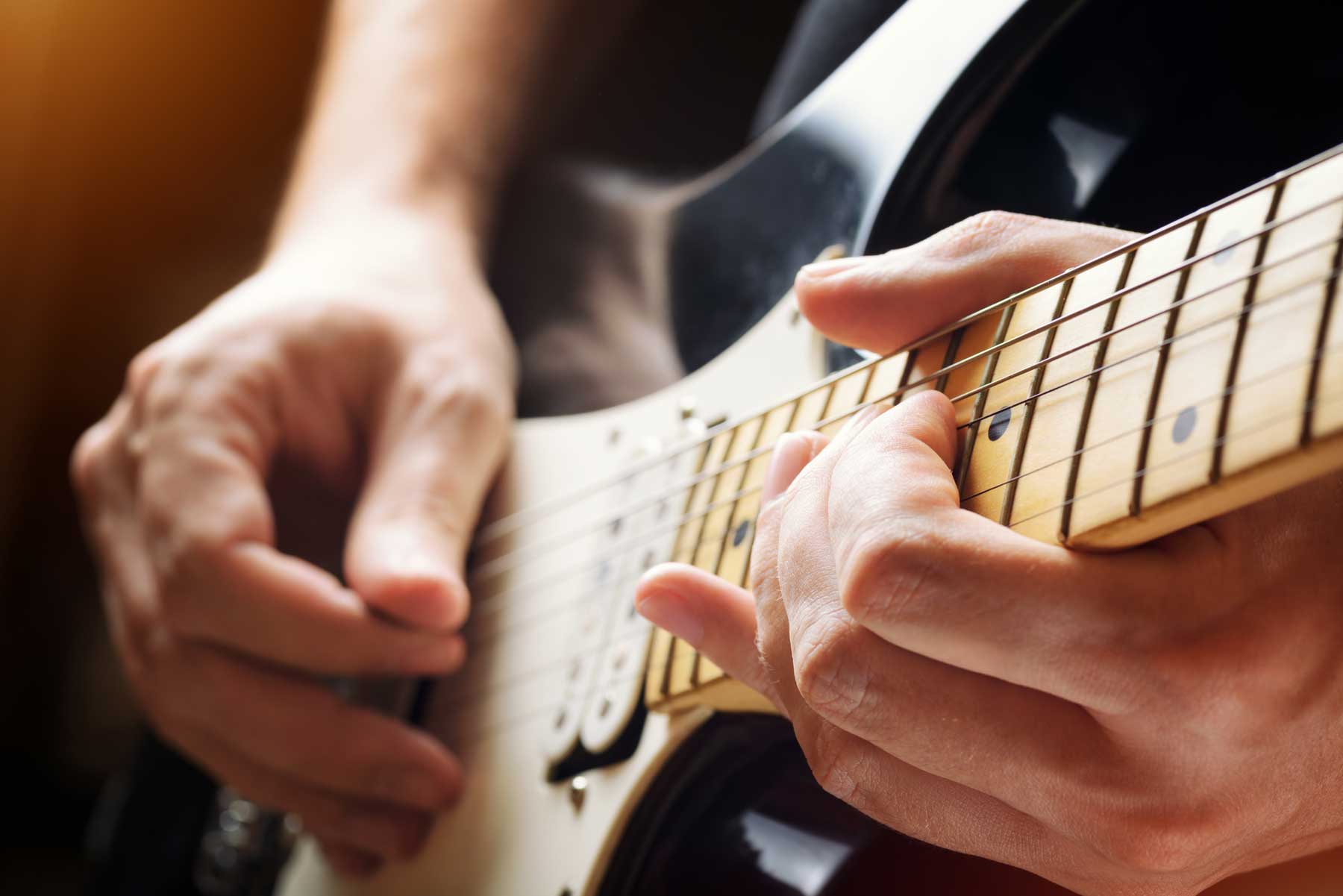
If you were to ask musicians (and their fans) whether their drug or alcohol use helped or hurt their artistic expression, the majority would say it was the fuel that ignited their creativity. But ask the same question to a musician who has kicked their drug or alcohol addiction and they’ll tell you a completely different story, and have the wherewithal to remember it the next day. Although not every person who plays an instrument or writes poetic lyrics is famous. But for those who have artistic moments through music and subsequently lost their passion for it due to drug or alcohol addiction, it’s just one more part of their life that has drifted and died. One of the many ways to help people in recovery is by rekindling that connection through music therapy in drug rehab.
Sound Touches the Soul and Opens Mindfulness
For centuries, people have been drawn to playing music or writing lyrics to share their thoughts and feelings in a manner that can’t be duplicated in any other way. Think about the last time you were in a car, for example, and a random song came on the radio or through your cellphone. If it’s familiar, you might draw an immediate association from the song to a person, place or experience. Even if it’s the first time in hearing the song, you may find comfort in some of the words heard or in the rhythmic beat of percussion. There’s a reason for that. According to the American Music Therapy Association, lyrics can initiate positive emotional changes. Numerous research studies have shown that the sound of drums evokes relaxation.
Whether a person chooses to participate in music creation, the lyrical side of songwriting or actively listening to musical works, sound supports the holistic side of addiction healing. Recipients of music therapy often describe it as a way to step outside of themselves and escape or, the antithesis, to reconnect internally on a more intimate level that feels safe and undisturbed.
Benefits of Music Therapy in Drug Rehab
Something worth noting about people who are sitting on the fence with their addiction – contemplating if drug or alcohol addiction exists — what can get them to sign on for drug or alcohol rehab is knowing that music therapy is available for them during the recovery process.
Science-based evidence and client testimonials tout the advantages that music therapy brings to traditional and alternative addiction treatment programs. Here’s a partial list of the benefits:
Music therapy helps:
- Reduce stress
- Induce relaxation
- Lower blood pressure
- Lessen symptoms of anxiety and depression
- Engage meditative state of mind
- Improve focus
- Deal with pain
- Communicate thoughts or feelings
- Remove boredom
- Interpersonal connectivity
- Create successful team building
- Reconnect passion
Group Sessions Engage Communication and Other Life Skills
 When people in drug or alcohol treatment include music therapy in their recovery program, it’s an opportunity to use one’s emotional intelligence and work collectively to see a project to completion. This is a huge goal for many as the aloneness that plagues those with addictions can be a roadblock to achieving even the smallest of tasks.
When people in drug or alcohol treatment include music therapy in their recovery program, it’s an opportunity to use one’s emotional intelligence and work collectively to see a project to completion. This is a huge goal for many as the aloneness that plagues those with addictions can be a roadblock to achieving even the smallest of tasks.
Part of the 12-step program includes the need to focus on something outside oneself, something greater or to a higher self. Music therapy allows this to happen without thinking about it as the creative process naturally flows that way.
While touring through America’s Rehab Campuses in Tucson recently, I saw for myself what took place in their music therapy sessions. I entered the room full of guitars, keyboards, drums, sound boards, speakers and pads of paper waiting to be filled with notes and words that spoke from clients’ hearts. The class was about to start. As staff members reminded others about the class and that they better hurry up in getting there, I couldn’t help but notice that as they approached the room, each came with a smile. It was obvious that music therapy was something they all looked forward to.
I asked a couple of the clients about their experiences with music therapy during rehab and my questions were met with enthusiasm. One man said that he used to “write poetry, before addiction took hold. And now, with this class I’m able to express my innermost feelings and share them with others who appreciate what I have to say and understand it.”
His commentary sparked response from another client, a young man who seemed a bit shy but eager to talk about his experiences. “It’s been three years since I picked up a guitar. I used to play all the time, was in a band. And then the heroin ended that. Until now… it’s like I forgot what I used to do but now I’m doing it.” He was interrupted by a young woman who walked in during our exchange and she added, “This guy totally shreds it too!”
My takeaway from my peek into music therapy was it gave clients the ability to own their thoughts and emotions, share them and grow from the experience while gaining personal validation as well. Monumental and something we could all use a little of each day.
Discover Musical Talents Unknown
You don’t have to be a creative type to enjoy music therapy. Many people do have an artistic side that just hasn’t been tapped in to: music therapy is a vehicle to open the channels and get comfortable with this type of healing. As the toxic effects of addiction slowly start to fade, life perspectives continue to shift. Music and its meaning may provide a clearer picture of what is and what could be. The elements of collaboration involved in group sessions of music therapy also provide a pathway in working more effectively with others, helping clients when they reintegrate into career.
Find Out How Our Music Therapy Can Enhance Your Drug or Alcohol Treatment Experience

